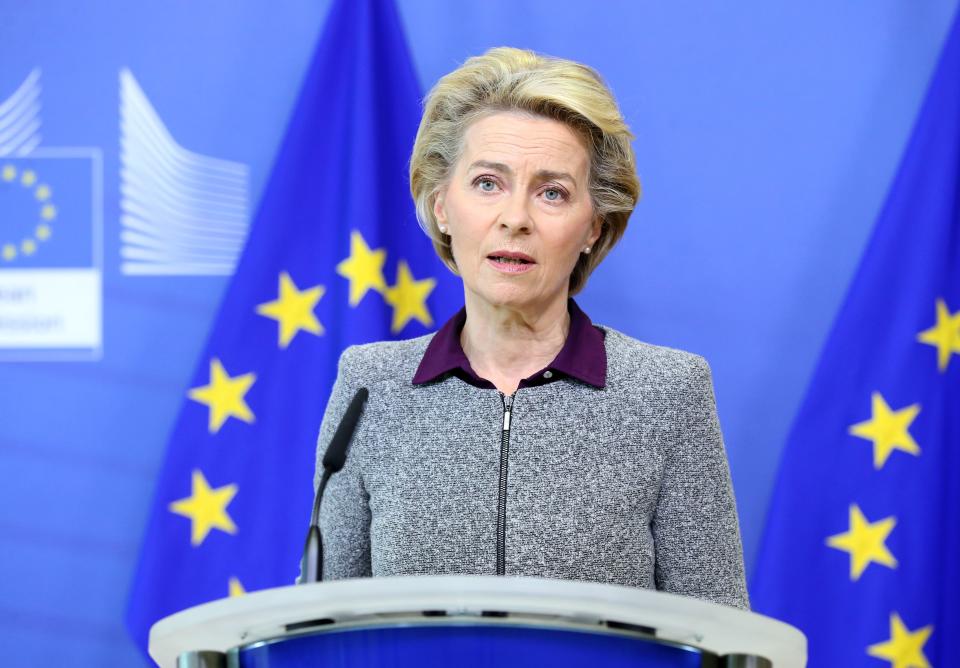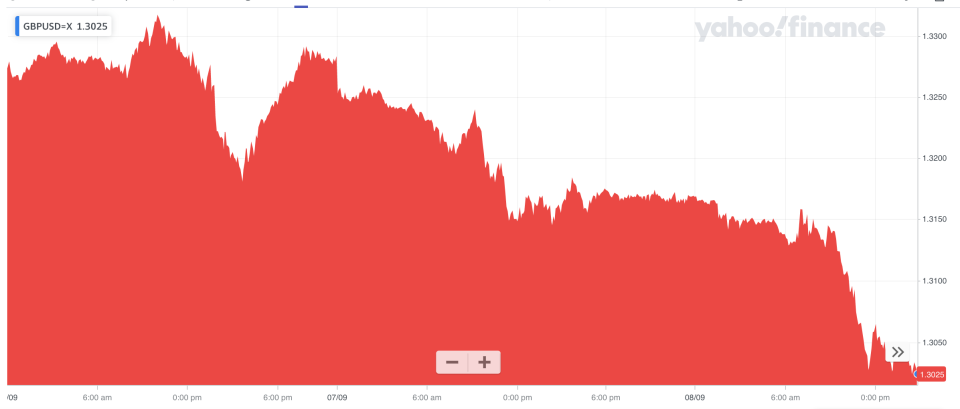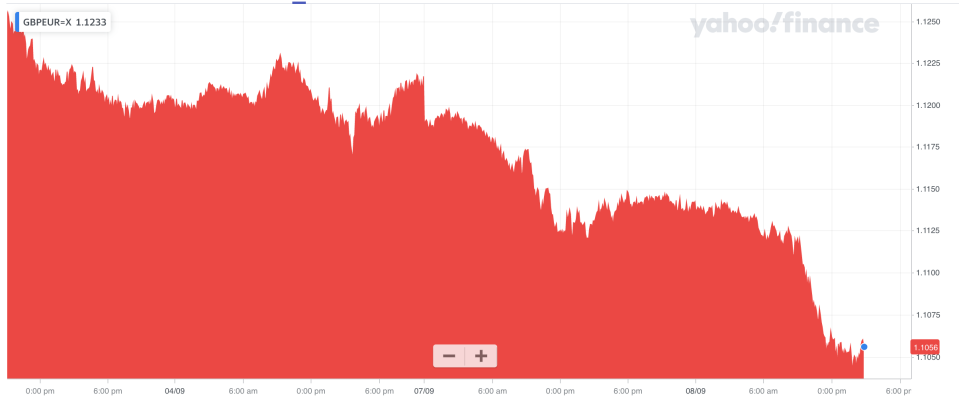Pound sinks as top UK lawyer quits amid Brexit row

The pound suffered its steepest decline against the dollar since March on Tuesday, as tensions between the UK and EU continued to escalate over Brexit trade talks.
Negotiations resumed in London on Tuesday, with mistrust and division between the two sides arguably at their highest point since talks began at the start of the year.
The two sides have clashed over reports that the UK plans to break key commitments on Northern Ireland made under the Withdrawal Agreement. The tensions have hit the pound in recent days, which has become a bellwether for Brexit in the years since Britain voted to leave the EU.
Watch: What is the latest disruption to hit the Brexit trade negotiations?
The sell-off intensified on Tuesday after the Financial Times reported that the head of the UK government’s legal department had quit, allegedly in protest at the decision to renege on parts of the Withdrawal Agreement.
A spokesperson for the UK government’s legal department confirmed to Yahoo Finance UK that Sir Jonathan Jones had resigned as permanent secretary for the department but declined to comment further.
Sterling fell 1% against the dollar to hit a 6-week low of $1.3024 (GBPUSD=X) by afternoon in London. It marked “the sharpest decline since March’s black Monday,” according to Sebastien Clements, a currency analyst at OFX.

The pound was down 0.7% against the euro to €1.1061 (GBPEUR=X) at the same time.

“The mood surrounding the negotiations has undoubtedly soured,” said Dean Turner, a UK economist at UBS.
“As both negotiating teams have reached the limit of their mandates, progress from here on out will require political intervention at the heads-of-state level.”
The sell-off for the pound began on Monday, amid headlines suggesting Brexit trade talks could collapse. The Financial Times reported that the UK was planning to table legislation this week that would break commitments made on Northern Ireland under the Withdrawal Agreement.
The Telegraph reported overnight on Tuesday that Boris Johnson planned to tell the EU that the Withdrawal Agreement he negotiated and signed is “contradictory” and needs rewriting.
“This is potentially very problematic for the ongoing trade negotiations between the two sides, since the Withdrawal Agreement is an international treaty between the UK and the EU that came into force at the end of January, having been signed by prime minister Johnson and passed by both houses of the UK Parliament,” Deutsche Bank strategist Jim Reid said in a note on Tuesday.
The reports prompted a rare public intervention by Ursula von der Leyen, president of the European Commission.
“I trust the British government to implement the Withdrawal Agreement, an obligation under international law and prerequisite for any future partnership,” von der Leyen tweeted on Monday.
READ MORE: Brexit: Valdis Dombrovskis becomes EU trade chief as Ireland loses crucial portfolio
A story in the Guardian on Tuesday threw doubt on her claim to trust the UK. Leaked EU cables passed to the paper suggest the EU believes the UK is negotiating in bad faith and suspect Downing Street is behind a slew of recent anti-EU stories in the British press.
Video: UK Brexit negotiator calls for 'realism'
Tensions were already rising before the reports that the UK would try to rewrite the Withdrawal Agreement. The UK’s chief Brexit negotiator, David Frost, gave a defiant interview to the Mail on Sunday over the weekend, saying Britain would not become a “client state” of the EU and confirming the government has stepped up preparations for a no deal outcome.
Deutsche Bank’s Reid said there had been “a clear escalation in rhetoric” in recent days.
Neil Wilson, chief market analyst at Markets.com, said: “The brinkmanship pursued by Johnson’s government in the talks — even suggesting that Britain could unilaterally rewrite the withdrawal agreement has raised the EU’s hackles and clearly raises the stakes.
“Expect more negative headlines, more risk and more volatility.”
UK prime minister Boris Johnson on Monday set a deadline of 15 October for any trade deal, saying both sides should “accept [it] and move on” if a deal could not be struck by then.

 Yahoo Sports
Yahoo Sports 